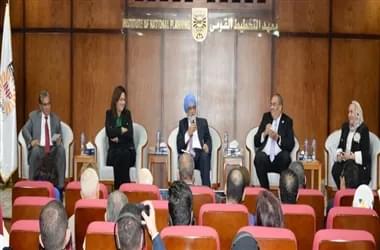The second series of distinguished lectures entitled “Financing the Transformation for a Green Economy in Developing Countries” was held at the headquarters of the Institute of National Planning, in the presence of Dr. Hala Al-Saeed, Minister of Planning and Economic Development, Dr. Mahmoud Mohieldin, Climate Leader at COP27, and Dr. Montek Singh Ahluwalia, Vice-Chairman of the Indian Planning Commission, and Dr. Khalid Fahmy, former Minister of Environment.
During her speech, Dr. Hala Al-Saeed explained the importance of the transition to green, and the efforts being made in this regard, and indicated that during the previous years, Egypt focused its efforts on creating comprehensive growth through initiatives through which the role of the private sector was strengthened through the Sovereign Fund of Egypt, whose role was based on collecting The private sector mobilizes its efforts and creates investment opportunities for investment projects that can be carried out locally, regionally and internationally.
Al-Saeed said that the Ministry of Planning, in partnership with the Ministry of Environment, issued for the first time environmental sustainability standards so that government agencies can implement them. water.
During her speech, Al-Saeed reviewed the National Initiative for Green and Smart Projects, and that the initiative targets many areas, foremost of which are projects that take into account environmental sustainability standards, which lead to reducing carbon emissions and pollution, and preserve natural resources, in addition to projects that enhance energy and resource efficiency, and that preserve diversity. Biological and ecosystem services that help adapt to climate changes. And she stressed that development must go from the bottom up, and all governorates have been involved in it. She praised the interaction and enthusiasm of its participants, and that the Ministry seeks to transfer the Egyptian experience regionally and internationally, in The framework of efforts to achieve sustainable development to implement Egypt’s Vision 2030 through preserving the environment to improve the quality of life and taking into account the rights of future generations, and the implementation of the National Climate Change Strategy 2050.
Dr. Mahmoud Mohieldin, Climate Pioneer at COP27, stressed in his speech the desired benefit of COP27 and what we expect from our hosting of it, and what it can do about mitigating climate change, and the role that Egypt plays in this file as a country with a strategic location, And funding, which plays a pivotal role in supporting the cause, and from where it can be obtained, stressing that the goal is to raise people’s awareness through the media of the dangers of climate change.
And Montek Singh Ahluwalia, Vice-Chairman of the Indian Planning Commission, and an advisor to the Ministry of Finance, explained that the Cop 27 conference is taking place in an exceptional circumstance that the world is going through in the wake of the Corona pandemic,
And the Indian experience and its role in limiting climate change, in which it addressed the mechanisms of the Government of India to reduce carbon emissions by substituting renewable energy from solar and wind energy to replace fossil fuels, and that many companies and factories used green hydrogen and stressed that despite everything that happened, it is not enough, that we need to redistribute resources, non-productive support and so on to help us go green.
He stressed that COP27 is required to set achievable goals so that zero emissions can be reached by 2050, stressing the need for a detailed sectoral plan to determine the role of all parties in reducing emissions, and to identify the investments we need, how much money each country needs, and how can be employed and to be more realistic about it, and for the Cop27 participants to go home with the promises they must fulfill
For his part, Dr. Khaled Fahmy, the former Minister of Environment stressed that we should not talk about climate change issues as an independent part, but rather they are part of a whole, and that all sectors of society must unite to confront the crisis, and that the matter does not require urgent solutions, but rather long-term solutions, and that The world has shouldered the historical responsibility since the Paris Agreement to reduce carbon emissions until Cop22, and even Cop27, and during his speech he indicated that the climate finance agenda should be between countries and not between governments and the private sector, and explained that the atmosphere of Cop27 we all have to be ambitious, and that There will be plans, programs and policies for the next ten years.
Related Posts

Congratulations: The Prime Minister’s decision to appoint Prof. Hala Muhammad Sultan Abu Ali, Vice President of the Institute of National Planning for Research and Higher Studies, for a period of four years
Prof. Ashraf Elaraby
President of the National Planning Institute
Sincere congratulations to A.D. Hala Muhammad Sultan Abu Ali, on the occasion of... read more

The Institute of National Planning participates in the Cairo International Book Fair in its fifty-fourth session under the auspices of the President of the Republic.
Cairo on January 26, 2023
The Institute of National Planning participated in the Cairo International Book Fair in its 54th session... read more

The Institute of National Planning held at its headquarters the third episode of “Tuesday Seminar”, which was devoted to talking about Dr. Ismail Sabry Abdullah, one of the senior planning pioneers in Egypt.
The Institute of National Planning held at its headquarters the third episode of "Tuesday Seminar", which was devoted to talking... read more
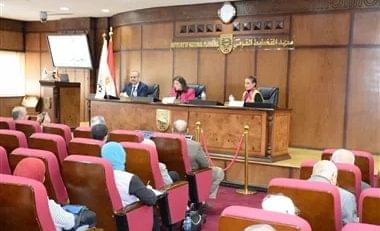
The Institute of National Planning holds a symposium entitled “Image Processing and Artificial Intelligence to Achieve Sustainable Development Goals”
The Institute of National Planning holds a symposium entitled "Image Processing and Artificial Intelligence to Achieve Sustainable Development Goals"
The Planning... read more
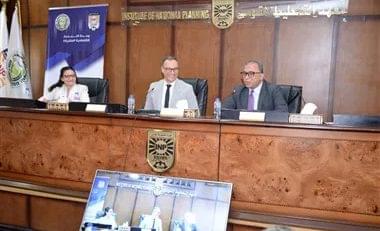
“National Planning” concludes a workshop on ” Economic Modeling in the Arab Countries” in cooperation with the “Arab Planning Institute”
The Institute of National Planning concluded a workshop on " Economic Modeling in the Arab Countries" in cooperation with the... read more
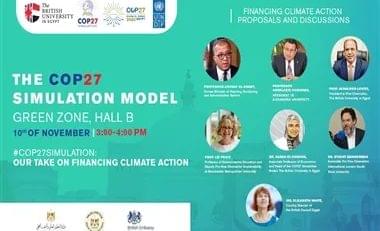
“Our take on Financing Climate Action”. Join the #COP27Simulation session on November 10th, COP27
"Our take on Financing Climate Action". Join the #COP27Simulation session on November 10th, COP27, Green Zone, Hall B to discuss... read more
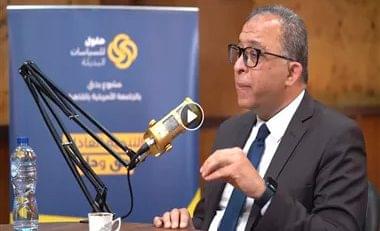
President of the Institute of National Planning, hosting the “Solution A” podcast with the Solutions Center for Alternative Policies at the American University
Ashraf Elaraby: The economic crisis the world is currently going through may be the most severe in years
The "Solutions for... read more
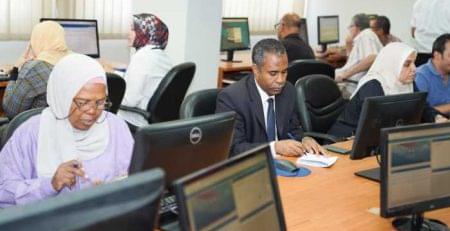
The Institute of National Planning holds a training course on the employee self-service system for members of the administrative staff of the institute
Within the framework of the Institute of National Planning's keenness to expedite the application of digital technologies and fully activate... read more

Check out INP’s latest policy paper of April 2023, titled “Sustainability of government debt in Egypt: Does the primary surplus in the general budget ensure its preservation?”
This policy paper aims to propose a number of necessary measures to maintain the sustainability of government debt and reduce... read more
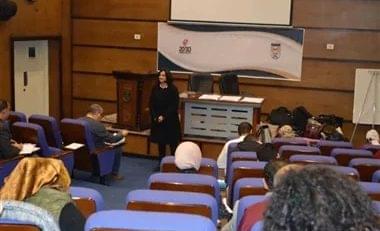
Vice President of the National Planning Institute for Research and Graduate Studies inspects the work of professional and academic master’s exams
Prof. Dr. Hala Sultan Abu Ali, Vice President of the National Planning Institute for Research and Graduate Studies, inspected the... read more

